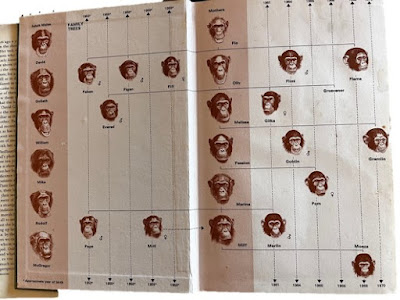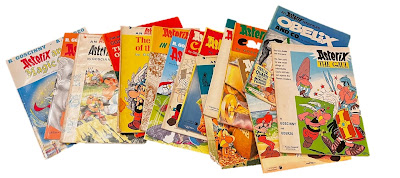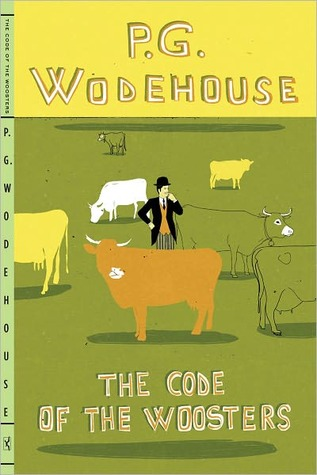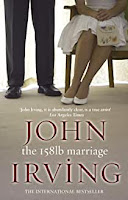The first time I read Jane Goodall’s ‘In the Shadow of Man,’ I was studying zoology at university, and this was one of our course-books. I was expecting a dry, academic tome. What I discovered was the intensely personal autobiography of a young English woman and a detailed account of the family of chimpanzees that accepted her into their fold. It is a book that has never left me, and I have re-read it several times. One feature that makes In the Shadow of Man so compelling is the family-tree of chimp faces that appears on the flyleaf. It is impossible to read the book without regularly consulting this handy guide to the chimps in the troop. Goodall was twenty-seven when she started work at Gombe Stream National Park in Tanzania. It was 1960. For years she lived in the park, spending most of her daylight hours with the chimps. She is said, to this day, to be the only human ever to have been accepted into a chimpanzee group, and for almost two years she was the lowest ranking member of the Kasakela troop.
Almost every aspect of Jane Goodall’s work with chimpanzees
was pioneering when she started, and not always welcomed by the scientific
community. The idea that a researcher should live among a group of wild apes
was considered rather shocking, especially if the researcher was young, blonde,
and female. But Goodall’s most unconventional idea, perhaps, was to give her
chimps names. This annoyed traditional primatologists who accused her of
becoming emotionally attached to the animals. Today it is common practice for
zoologists to name animals, especially primates, and the names Goodall gave to
the Gombe chimps helped to bring their stories to a worldwide audience in a way
that would never have happened had they been Chimp A or Chimp B. I still
remember with affection the names of the chimps from In the Shadow of Man – David Greybeard, Goliath, Flo, Fifi, and
Flint.
 |
| The Family Tree from In the Shadow of Man |
I've been working on a novel, on and off, that may or may not ever see the light of day. It draws heavily from 'In the Shadow of Man.' At present my title for this book is Girl/Ape. It is the entirely fictional story of a young woman who lives with a troop of wild chimpanzees. I'm 38 thousand words in; but who knows. I shall let you know how it goes.
Sue and I have been lucky enough to meet Jane Goodall twice on
her UK lecture tours, and both times her stories have brought us to tears. If
you want to learn more about Jane Goodall I heartily recommend In the Shadow of Man, along with ‘My Life with the Chimpanzees’ and ‘Through a Window: 30 Years with the
Chimpanzees of Gombe.’ You might
also like to subscribe to the Jane Goodall Institute’s YouTube channel.
Please check out my website for more information on my books. https://www.johnironmonger.com










































.jpg)